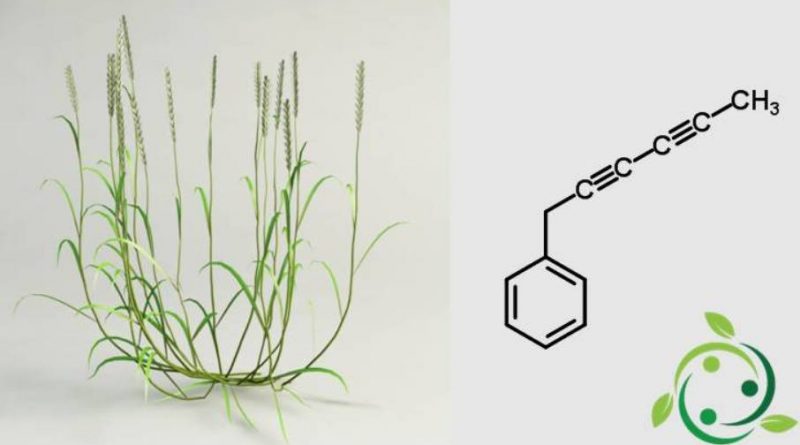Agropyrene
Agropyrene
The agropyrene, whose term in the official IUPAC nomenclature is hexa-2,4-diyn-1-ylbenzene is a molecule whose brute or molecular formula is: C12H12.
Acropierene, in nature, is present above all in the weed plant (Elytrigia repens (L.) Desv. ex Nevski, 1933).
It should be remembered that gramignia contains a percentage of essential oil between 0.01 and 0.05%, of which 95% of this is made up of agropyrene, with antibiotic activity the agro pyrene therefore plays an antiseptic action especially towards Staphylococcus, Streptococcus, Enterococcus spp ..
For this reason the decoctions of weeds, thanks to the action of the agropirene, exert a marked antiseptic and anti-inflammatory action on the kidneys and the urinary tract. Due to these properties, the therapeutic action of wheatgrass brings benefit in the case of cystitis and inflammatory states of the urinary tract; in the treatment of rheumatism, arthrosis, arthritis and hyperuricemia.
The use of Elytrigia repens is known, in phytotherapy, since classical Greece. Sick dogs are known to dig up and eat their roots and medieval herbalists used it to treat bladder inflammation, painful urination and water retention.
Warning: The information given is not medical advice and may not be accurate. The contents are for illustrative purposes only and do not replace medical advice.

